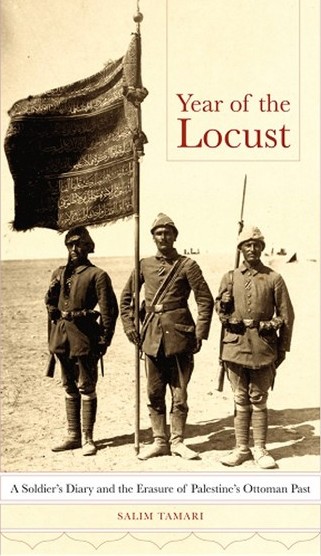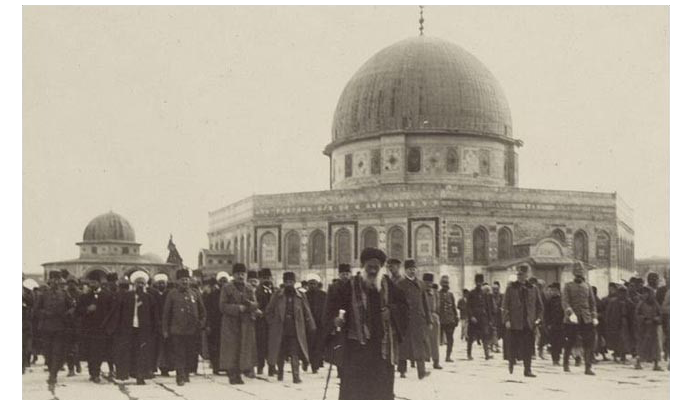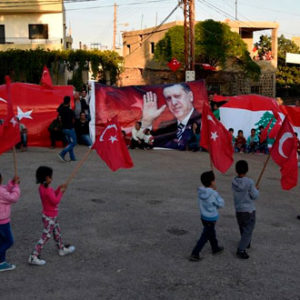The book is short consisting of 201 pages and made up of two chapters; one of them titled “The Erasure of Ottoman Palestine,” and the second chapter is called“The Diary of Ihsan Turjman,” which forms the bulk of this book.
In the Year of the Locust: A Soldier’s Diary and the Erasure of Palestine’s Ottoman Past, Salim Tamari throws light on the devastating effects of the First World War based on the personal diaries of three regular Arab soldiers serving in the Ottoman military. These accounts point out to the war’s impact on the soldiers’ own lives and their societies.Interestingly, as Tamari has noted, these men completely broke with their centuries-old Ottoman past and developed new distinct identities and sensibilities.

Tamari, Salim. Year of the Locust: A Soldier’s Diary and the Erasure of Palestine’s Ottoman Past. Berkeley: University of California Press, 2011.
To begin with, Muhammad Fasih, one of the three soldiers coming from Mersin, was initially an Ottoman nationalist having fought in Gallipoli, Gaza and Beersheba. But, when the Turkish Republic came into being, he declared himself a Turk. Aref Shehadeh, later known as Aref al Aref, was originally from Jerusalem. He had briefly worked for the Ottoman Foreign Ministry.After being taken as a prisoner of war by the Russians, he was exiled to Siberia. Apparently, there he established his own Arabic newspaperNaqat Allah.With the outbreak of the Russian Bolshevik Revolution in 1917, he escaped and returned to his homeland strikingly by way of Manchuria, Japan, China, India, and Egypt. At a later stage of his life, he became a zealous supporter of the Arab nationalist movement.
Meanwhile, Ihsan Turjman was an Ottoman- Arab soldier serving within his neighborhood Jerusalem. Unlike the two other soldiers, he did not appear to have a solid national identity. He continuously changed sides based on the course of the events. That is why, at some instances, he claimed that he was an Ottoman and at other times, he considered himself an Arab. But, he always preserved his local Jerusalemite identity and expressed concern about the fate of Palestine once the war was over.
Turjman did not experience the war on the front, because of his father’s intercession in exempting him from that duty. Instead, he worked at the Ottoman Commissariat of Jerusalem. Initially, he rejoiced for the Ottoman victories in Gallipoli and Kut al Amara.But, after the outbreak of the Arab Revolt in 1916, he sympathized with the Arab soldiers of Hijaz. It was significant that after the Arab Rebellion, he accused Cemal Pasha of being hypocritical, cruel, and rude towards his soldiers. Moreover, Turjman was not impressed by the Pasha’s military achievement and continuously blamed him for the Ottoman defeat at the Suez front.
In addition to developing an understanding of the changing identities, scholars interested in the history of the First World War can use Ihsan’s account in studying some of the social, psychological, emotional, and economic problems that prevailed during the war: financial inflation, diseases, locust attacks and famine. The streets of Ottoman Jerusalem were filled with beggars and prostitutes, who were after securing some kind of living.
In their turn, soldiers also lived under harsh conditions. They faced a tobacco shortage and were deprived of drinking beer. They also went unpaid and suffered from hunger due to the dearth of essential goods such as sugar, flour, and bread. Meanwhile, their commanders had become morally corrupt and committed debauchery celebrating with prostitutes. In addition to these events, homosexuality had also made its way within the Ottoman military and Turjman was all the time afraid of catching the so-called “Frankish disease.”
Upon reading Turjman’s diary it becomes clear that the soldiers’ lives were full of threats and uncertainties. They did not know what was awaiting them. Some of them, such as in the case of Turjman, wanted the immediate cessation of the war so that they could be able to enjoy their normal lives and get married.
Yet, more interestingly, this account shows that despite these distressing conditions, Turjman showed a deep concern towards the status of Muslim women believing that educating them was the key for their emancipation. He also discussed his love affair and mentioned some of his visits to his teacher Khalil Sakakini. Thus, indicating that however difficult life was, they continued to live more or less normally.
Ihsan Turjman’s diary is of great significance since it allows historians to view history from below. This account is unique since it is written by an ordinary soldier, who did not fight, but highlighted the impact of the war on the city of Jerusalem, which was not a battle front, but suffered from many hardships. Unfortunately, Tujman was killed in the winter of 1917 by an Ottoman-Albanian officer, leaving his diary incomplete.It is suspected that the reason behind the murder was Turjman’s refusal to submit to the officer’s sexual desires.
Bedros Torossian is a senior undergraduate History student at the American University of Beirut. Late Ottoman educational life lies within his area of research. He has recently published an article called “Roles of Turkish and American Orphanages in Influencing Armenian Identities” in Haigazian Armenological Review in 2016. “







